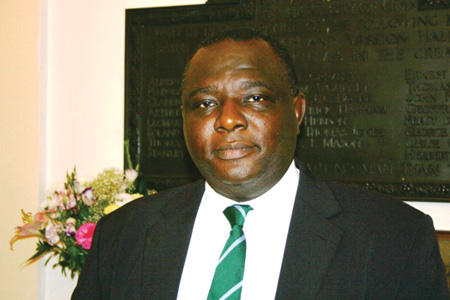
Titus Boye-Thompson, Communications Consultant
The Police have earned for themselves a very bad name over the period. Most of the time, this is unsupported, unsubstantiated or even provable but when it is whispered that a bribe was sought by a Police officer in the conduct of an engagement with the public, most would tend to believe and agree that such is normal behavior for members of the Police force. What many would not do is to question the veracity of such assertions. Did the Police actually demand a bribe or did the member of the public offer a bribe to the Police when they imagine that they have fallen foul of the law and wanted to get a swift exit from their predicament.
The notion of Police bribery is not new and nor is Sierra Leone where this phenomenon exists. However, there does not seem to be any examination of the claims made against the Police from time to time and when these complaints are aggregated, it becomes an enormous problem for the Police to counter. The announcement therefore that the Police tops the list of institutions for whom bribe complaints have been registered on the Anti-Corruption Commission’s Pay No Bribe campaign, it is not to be treated lightly.
The perception from the public in relation to the Police stems from a range of issues, but specifically it can be traced to the mandatory functions of the Police as the principal enforcers of law and order. Considering that what we have is a seemingly lawless society, the potential for discord between the Police and the public is expected to be very high.
The Policing strategy is also people centred which calls for a lot of engagements between the Police and their communities in the delivery of “Community Policing,” a system of policing that is catered to meet the needs and expectations of the local communities including dealing with then types of local issues that may degenerate to conflict in communities. Thus in urban areas, community policing may investigate cases relating to road traffic offences, domestic violence or theft while in more rural settings, instances of conflict between farmers and cattle herders may be more prevalent.
In the event, the Police in the urban setting may have a greater chance of his conduct being played out in public as compared to the Officer dealing with a farm dispute in the village. In either of these settings however, the Police in their conduct may be left open to allegations of high handedness or otherwise tend to be compromised by the offer of a gift or token for what they would otherwise have done out of discretion.
Those who have studied corruption and bribery agree that it is the incidence and exercise of discretion that allows a latitude for corruption in the performance of public duty or service. The Asian Tigers, a group of Asian Nations including Thailand, Indonesia, Taiwan etc have gone through violent progressions in their development and the prevalence of War Lords and Triad Gangs created a society embedded with corruption and graft. To manage the violence created by corruption and the degradation of their communities, they devised a way to convert the latitude provided by discretion into what is known as economic rent. In this way, those who would impose corruption became institutionalized into the system of service delivery and they became stakeholders in the functioning of a well ordered society. For their collaboration, they became recipients of the largesse that came from a higher service charge and therefore guarantors of a society that is more managed in terms of reducing the bad influence of corruption.
The Anti-Corruption Commission’s Pay no Bribe Campaign has failed to address the key contexts of public perceptions and how this impacts on a quantitative data collection system that has ultimately been structured to arrive at a corruption perception index. To the extent that the system captures a statistical frequency that is not rasterized for duplication or accuracy is clearly discounted in the permutations of the analysis that creates the current result.
In computer languages, it is expected that GARBAGE IN = GARBAGE OUT. So when the Pay no Bribe Campaign comes out with a headline that the Police is the most corrupt institution in the country, this is not only refusing to say anything new or provide an analysis that is substantiated by irrefutable logic but it also simply giving out a detail of the expectations of the programmers when the system was set up. In the event, the Pay no Bribe Campaign was set up against the Police because it is a one way system that accords the Police no measure of response or repudiation to the allegations that may be recorded against it. It is also the case that where a simple complaint is made a thousand times, the system would record it as a thousand complaint instead of rationalizing it as a single complaint.
It is easy to quantify frequencies as events but it is more difficult to say with absolute certainty that all frequencies are independent and unrelated. For this reason, the burden on the Police and other public institutions that deal with the public on a direct engagement would necessarily raise more complaints issues but not in all instances that such complaints may be founded in law or in fact.
In conclusion, it may do well for the Sierra Leone Police to undertake a serious scrutiny of the PnB Campaign systemic and to understand its ramifications for public confidence in the force. Notwithstanding, the SLP had already instituted functioning complaints and internal control measures such as the CDIID which is empower to investigate any complaint levied against a serving officer in the conduct of his duty. By way of strategy, the Sierra Leone Police must unleash a communications strategy that opens up these institutions to the awareness of the general public and to divert public engagement with these internal complaints procedures and when justice is provided swiftly within these frameworks, there will be a higher level of public acceptance and confidence on the effectiveness of these institutions and in turn result in a greater appreciation of the Sierra Leone Police as a force for good.



